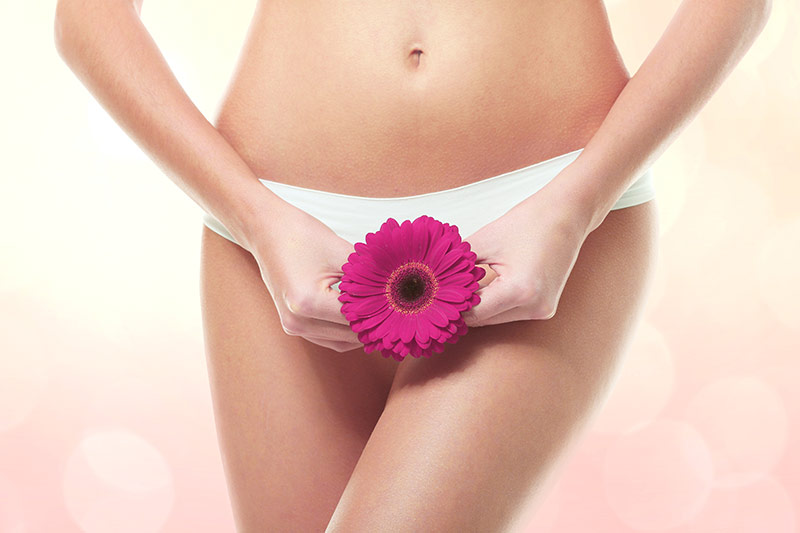Vaginal Health: Do’s and Don’ts

In this series we will explore multiple feminine health practices/beliefs/products and utilize the doctor’s knowledge as well as trustworthy sources to help you navigate the right path towards good vaginal health.
Feminine products have been a niche market for decades; interestingly enough they offer utmost “hygiene” all while conveniently forgetting to acknowledge that the vagina essentially cleans itself. Unfortunately, for products that should be of purest standing, many contain additives and preservatives that have shown to have adverse side effects and that most of us probably wouldn’t feel comfortable consuming.
The skin of the vulva (which includes the external genitalia i.e. the minor and major labia, clitoris, and perineum) is highly absorptive, as is that of the vagina. This means both easily uptake substances introduced including those found in tampons, pads, douching products, soaps and more. Furthermore, both are made up of highly sensitive skin which may become irritated from small changes in normal vulvovaginal conditions, whether that be changes in pH, bacterial flora, or skin moisture, to name a few.
Often times, the basis of recurrent vulvovaginal symptoms, like itching or foul odor for example, is the disruption of the delicate balance of vulvovaginal conditions. Vulvovaginal pH is normally on the acidic side of the scale around 3.5-5 on the pH scale (ranges from 0 to 14, the lower the number; the more acidic, the higher number; the more basic). Many products disrupt this pH balance which gives bacteria room to flourish which can lead to infection. An example of a product disruptive to your natural vaginal flora is the vaginal douche.
Douching, which includes the flushing of the inside of the vagina with some sort of fluid or mix of fluids, has been around for centuries. Initially, it was used with the intention of preventing pregnancy, although it doesn’t effectively do so, and was also used to prevent STD transmission, although, again, it doesn’t effectively do so.
Eventually, around the late 1960’s, douching evolved to set a standard to keep lady parts smelling like fruits and flowers, which is undoubtedly unnatural. Many of these products also contain parabens which are preservatives that some studies show to have a disrupting effect on our hormonal systems. Nowadays, women still use it for all the above reasons due to generational or cultural teachings, lack of research and policing in this area, a lack of information and persistent and perhaps misleading marketing.
Doctors, however, have advised against douching for decades now and are backed up by their corresponding committees, including the American College of Obstetrics and Gynecologists (ACOG). The vaginal environment is made up of healthy and “bad” bacteria and this balance is what helps maintains pH and healthy vaginal conditions.
Douching, and other products, can throw off this balance which allows infection to take advantage of this opportunity to proliferate. The vagina has the power of cleaning itself and does not need to be cleaned internally. Externally, the vulva is best washed by hand with water and a mild soap, preferably with pH balance and no synthetic fragrances. If you have delicate skin and even delicate soaps cause dryness and irritation, try just water.
Douching has been associated with:
- Problems with getting pregnant
- Higher risk for problems during pregnancy (ectopic pregnancy, preterm delivery)
- Vaginal infections (yeast infection of bacterial vaginosis)
- Increased risk for obtaining sexually transmitted diseases (HIV, HPV, etc)
- Increased risk for pelvic inflammatory disease (PID)
- Vaginal irritation or dryness
* according to womenshealth.gov, “studies have not found any health benefit to douching”.
References
https://www.womenshealth.gov/a-z-topics/douching#4
Chen, Y., Bruning, E., Rubino, J., & Eder, S. E. (2017). Role of female intimate hygiene in vulvovaginal health: Global hygiene practices and product usage. Women’s Health, 58–67. https://doi.org/10.1177/1745505717731011
Dr. Luis Tobon
